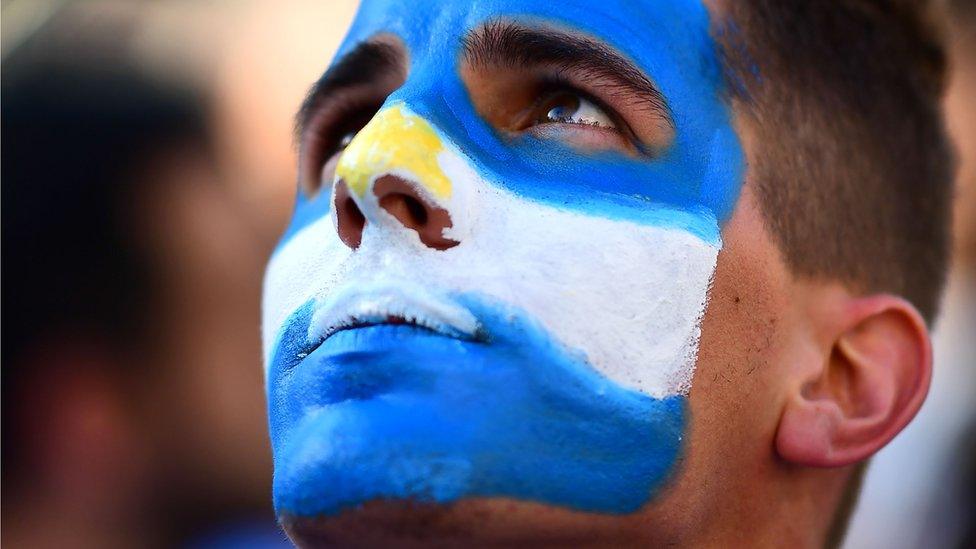Argentina election: Centre-left Alberto Fernández wins presidency
- Published
Argentina election: Alberto Fernández wins Presidency
Centre-left opposition candidate Alberto Fernández has been elected president of Argentina in a vote dominated by economic concerns.
Mr Fernández, 60, got more than the 45% of the vote needed to win, beating conservative incumbent Mauricio Macri.
Raucous crowds gathered at Mr Fernández's election headquarters to celebrate the result of Sunday's poll.
The vote was held amid an economic crisis that has left a third of Argentina's population in poverty.
Former president Cristina Fernández de Kirchner, 66, will now become vice-president in Mr Fernández's administration. She is said to have played a key role in Mr Fernández's electoral triumph.
Mr Macri, 60, had trailed behind his challenger in pre-election polls and was trounced by the opposition in primary elections in August. He conceded defeat on Sunday night, congratulating his political rival.
On Monday, Mr Fernández was seen arriving at the presidential palace in Buenos Aires to discuss an orderly transition with Mr Macri.
Mr Fernández, who belongs to the populist Peronist movement, said his team would collaborate with the outgoing president "in every way we can".
So, what about the election results?
With 97.13% of ballots counted, Mr Fernández had 48.10% of the vote, Argentina's electoral authority said. Mr Macri had 40.37%. To win in the first round, a candidate needs at least 45% of the vote, or 40% and a 10-point lead over the second-place contestant.
Mr Fernández is expected to assume the presidency on 10 December.
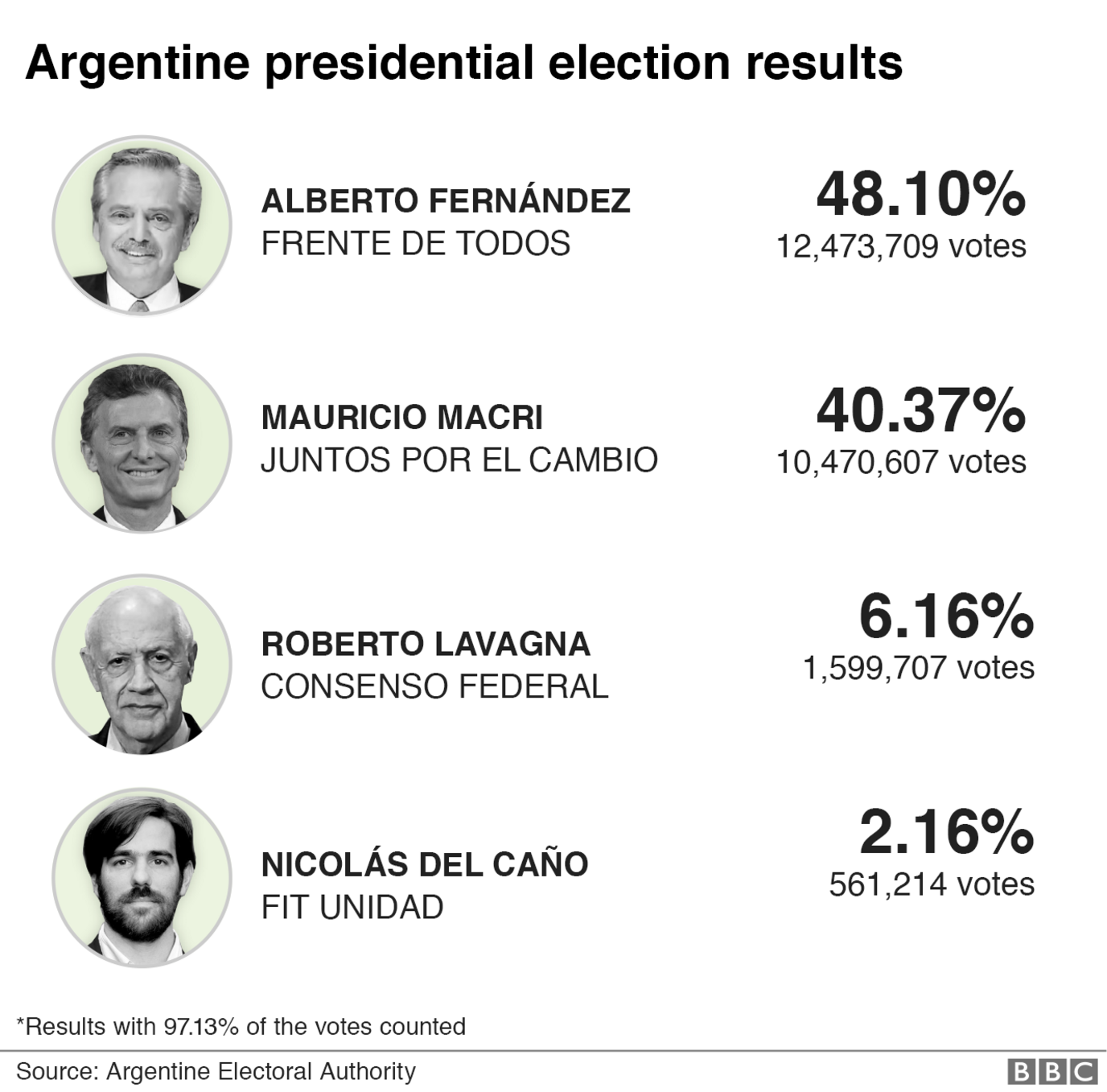

What was this election about?
The vote was dominated by concerns over the economy. With about one in 10 people out of work, Argentine voters backed the candidate they thought was best-placed to lead the country out of the crisis.
Mr Macri promised to achieve "zero poverty", but things actually worsened during his four-year rule. His supporters say he inherited a broken economy when he came to power and needed more time to fix it.
Mr Fernández has vowed to play things safe financially, but some voters fear that under his administration Argentina could return to the populist policies that helped push the country to its current state.
On Monday, the central bank restricted dollar purchases to $200 (£155) from $10,000 a month until December. The move is aimed at reducing dollar demand and stabilising the Argentine peso.

A comeback for the old politics - and Cristina Fernández de Kirchner

At the Alberto Fernández campaign headquarters, people started gathering in celebration even before the result was out. Waving blue and white Argentine flags, many supporters also wore T-shirts with his face emblazoned on them.
But more ubiquitous was the image of Cristina Fernández de Kirchner, his vice-president and former leader. For many, she is a modern-day Eva Perón - a woman who has supported the poor with social programmes.
Her presence in this race clearly helped to propel Alberto Fernández to the top. So much so that many people, when asked who they were voting for, replied "Cristina" as if she was the one running for president rather than vice-president.
But she is a divisive figure, also accused of being corrupt and economically irresponsible.
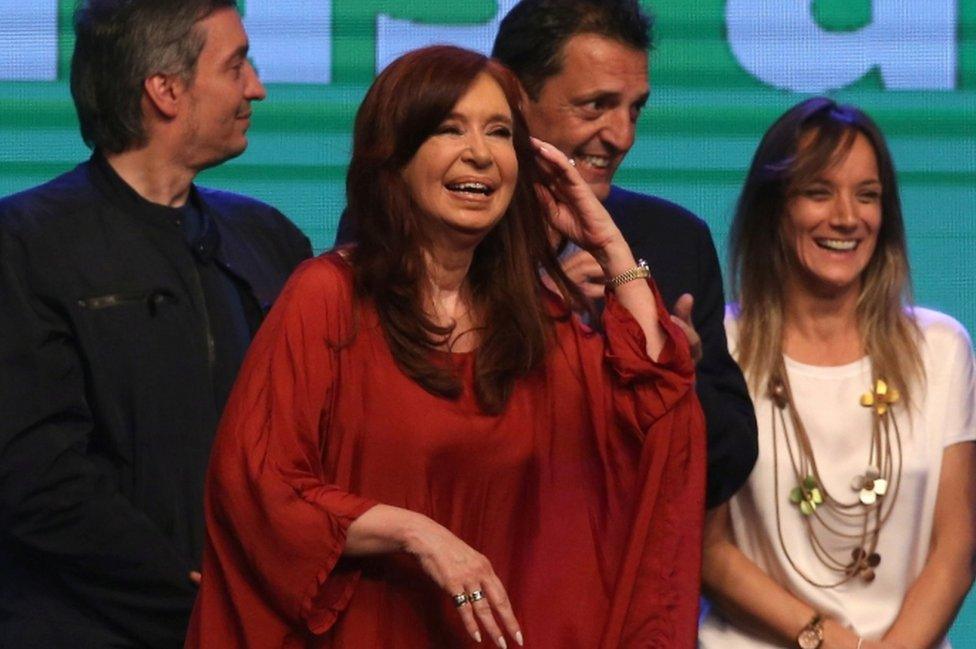
Former President Cristina Fernández de Kirchner (C) will now return as vice-president
The chants from the crowds of "we will be back" came true. Alberto and Cristina - and Peronism - are back.
The challenge now will be to satisfy those who wanted a return to old politics, while convincing their critics they'll move the country forward.

Who is Alberto Fernández?
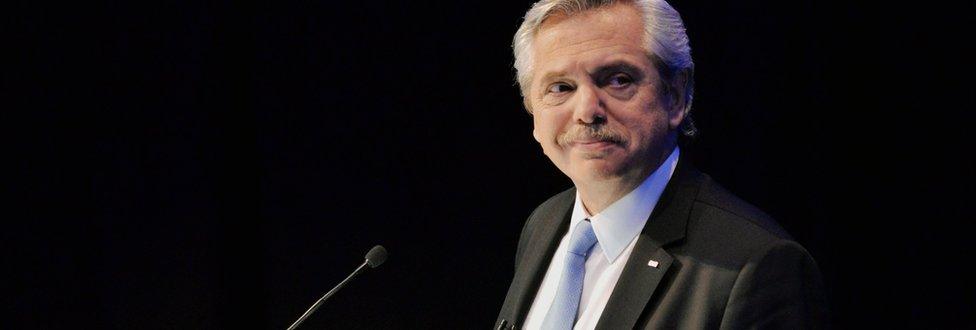
Career politician Mr Fernández has caused quite a stir since he first appeared in the limelight of Argentine politics some six months ago.
The former campaign strategist began his bid for the presidency in May - something of a surprise as ex-president Cristina Fernández de Kirchner had been widely tipped to be the centre-left opposition coalition's candidate for the top office.
But Mr Fernández really came into his own in August when he defeated Mr Macri by nearly 15 percentage points in primary elections, a compulsory vote for all electors which is seen is a dry-run for the presidency.
This victory, defying all predictions, set him up as the clear favourite.
- Published24 October 2019
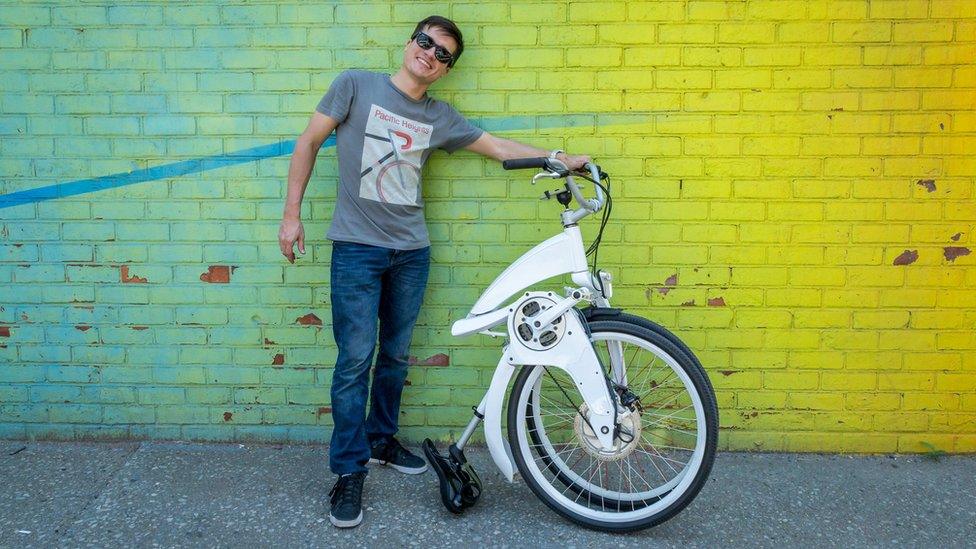
- Published27 October 2019
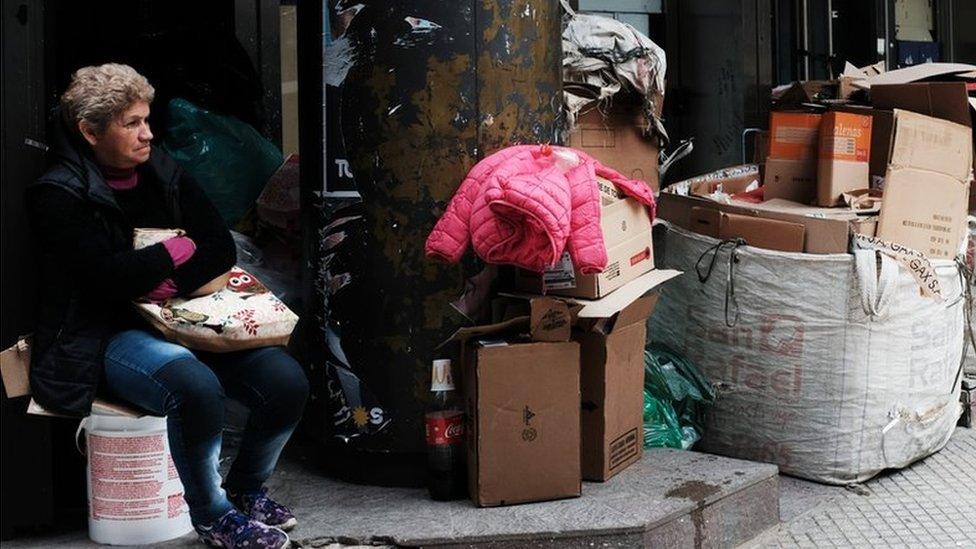
- Published28 October 2019
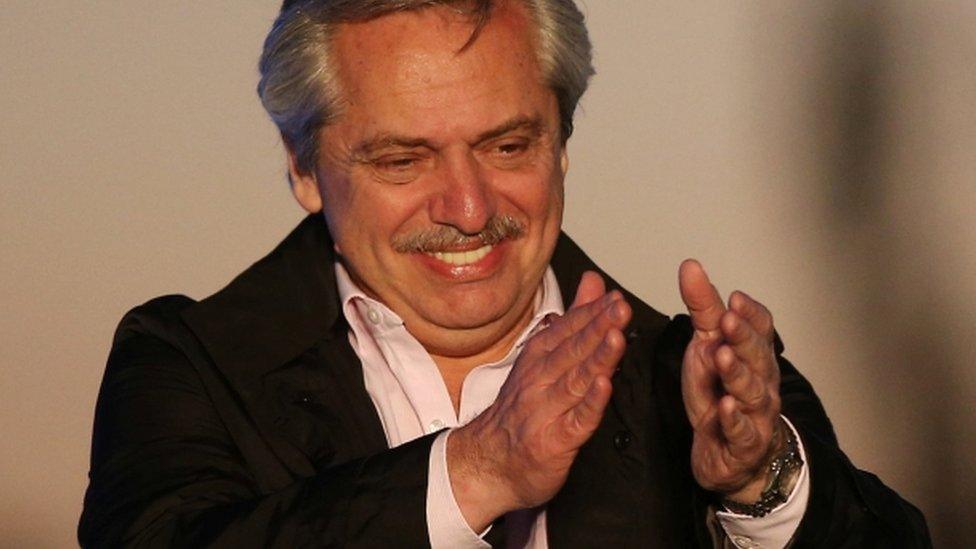
- Published26 October 2019
